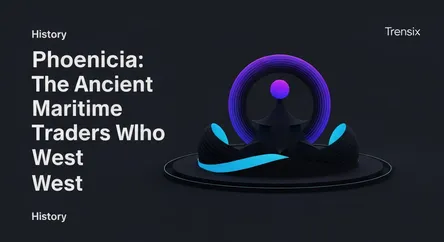History
Phoenicia: The Ancient Maritime Traders Who Sailed West

Explore Phoenicia, the ancient maritime civilization famed for its vast trade networks, powerful colonies, and its most enduring legacy: the alphabet.
What is it?
Phoenicia was an ancient civilization located on the coast of the eastern Mediterranean, in the area of modern-day Lebanon. It was not a unified empire but a collection of powerful, independent city-states, including Tyre, Sidon, and Byblos. Flourishing between approximately 1500 and 300 BCE, the Phoenicians were renowned as enterprising maritime traders and expert seafarers. They established a vast network of trade routes and colonies across the Mediterranean Sea, from Cyprus to North Africa and Spain. Their most famous colony, Carthage, eventually grew into a major power itself.
Why is it trending?
Historical interest in Phoenicia remains strong due to its crucial role as a cultural and economic bridge between the civilizations of the Near East and the Mediterranean. The Phoenicians facilitated the exchange of goods, ideas, and technologies, connecting major powers like Egypt, Mesopotamia, and Greece. Renewed archaeological research continues to shed light on this once-enigmatic civilization, revealing the vast extent of their influence. Their legacy is particularly significant because they are credited with developing one of the earliest known phonetic alphabets, a system that revolutionized communication.
How does it affect people?
The most significant impact of Phoenicia on people today is the alphabet. The Phoenician alphabet, consisting of 22 consonants, was adopted and adapted by the Greeks, which in turn became the ancestor of the Latin alphabet used for English and many other Western languages. This system simplified writing, making literacy more accessible. Beyond language, the Phoenicians' establishment of trade networks laid the foundations for a culturally and economically interconnected Mediterranean world, a concept that has echoed through subsequent empires and modern global trade.